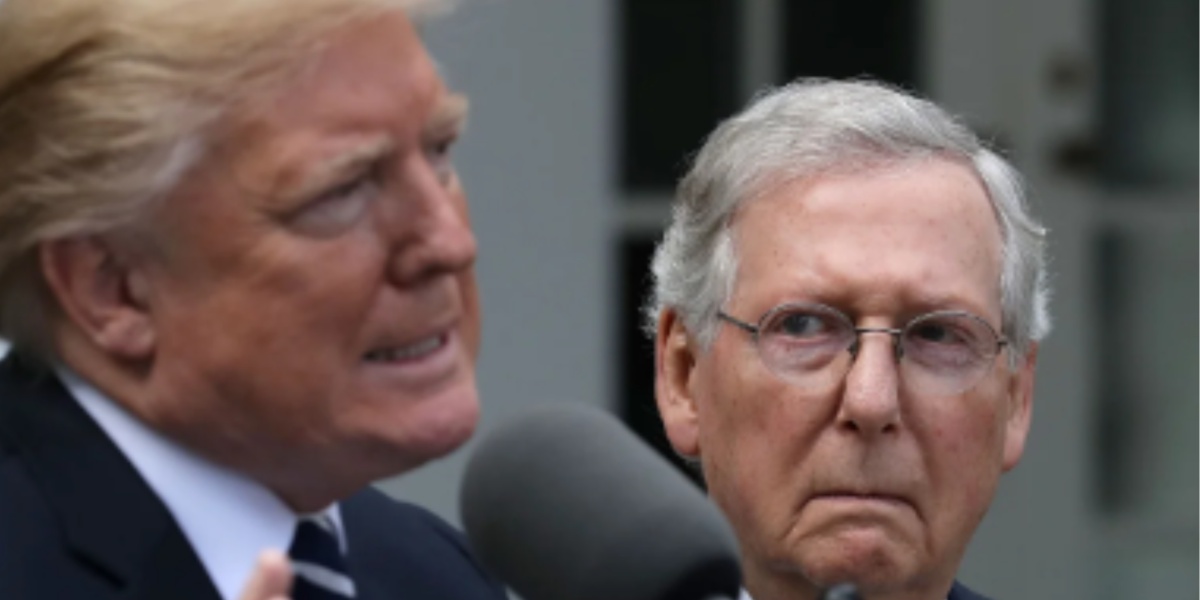Copyright inquisitr

The Senate delivered a rare public rebuke to President Donald Trump on Tuesday night, voting 52-48 to advance a resolution aimed at undoing his 50 percent tariffs on Brazilian imports, from coffee and orange juice to oil. Five Republicans crossed the aisle, a small but unmistakable crack in the party’s support for Trump’s “emergency” trade crusade. The Republicans who broke ranks were Sens. Rand Paul and Mitch McConnell of Kentucky, Thom Tillis of North Carolina, Susan Collins of Maine, and Lisa Murkowski of Alaska, joining all Democrats to challenge Trump’s use of the International Emergency Economic Powers Act as a tariff machine. The measure is expected to stall in the GOP-led House, where leaders have set procedural roadblocks until early 2026, but the Senate vote still amounts to a stinging symbolic rejection of the president’s go-it-alone strategy. McConnell, the former Republican leader, didn’t mince words about the policy fallout. “Tariffs make both building and buying in America more expensive,” he said via CNN after the vote, adding, “The economic harms of trade wars are not the exception to history, but the rule.” The comments undercut the White House narrative that the levies are cost-free leverage. This fight has been building for months, as Trump rolled out sweeping tariffs under emergency authorities while framing them as a pressure campaign over Brazil’s handling of former president Jair Bolsonaro’s legal troubles. Brazil’s President Luiz Inácio Lula da Silva blasted the move as “unacceptable blackmail,” saying the United States sent “threats to Brazilian institutions and false information about trade.” Even if the House doesn’t take up the Senate resolution, the legal terrain is shifting under Trump’s feet. A federal appeals court has already held that his sweeping tariffs likely exceed the authority Congress granted under IEEPA, and the administration is steering toward the Supreme Court to keep the program alive. Legal briefs have piled up, with small businesses and several states urging the justices to rein in the executive’s tariff power, a showdown that could redraw the map of modern trade policy. For Republicans, the political calculus is getting harder to ignore. Business groups warn that trade with Brazil supports significant U.S. jobs, and that sudden, broad tariffs inject chaos into supply chains and consumer prices. Senate Democrats, led by sponsor Tim Kaine, framed Tuesday’s vote as a stress test for Trump’s theory of emergency tariffs on friendly nations, while a handful of Republicans signaled they’re not eager to own the economic blowback heading into a volatile election cycle. The result, 52-48, was narrow, but it placed names on the board and opened the door to similar efforts targeting other “emergency” tariffs. The White House argues the tariffs are essential leverage, and allies insist Congress shouldn’t hamstring presidential flexibility in negotiations. But Tuesday’s roll call shows there’s an emerging Republican appetite to put limits on a policy that’s raising prices at home, straining ties with a key regional partner, and, now, drawing heat from conservative stalwarts like McConnell. Whether or not the House ever takes up the Senate’s challenge, the split is out in the open, and the Supreme Court’s coming review may soon decide just how far a president can go with a pen, a proclamation, and a tariff schedule.



